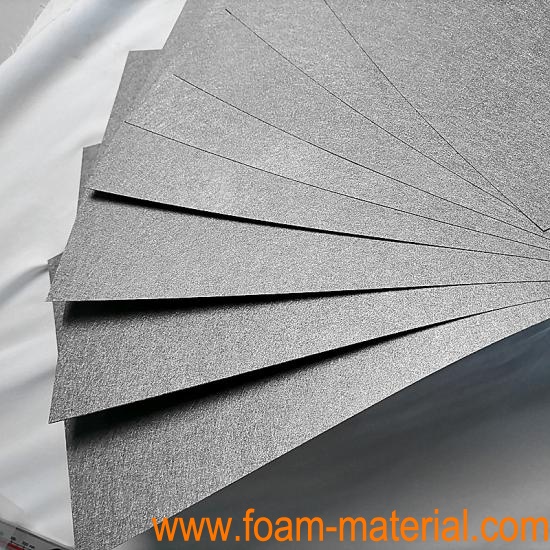Titanium Felt: An Overview
Titanium felt is a porous, flexible material made from titanium fibers. It is commonly used in various advanced applications due to its unique properties, such as high surface area, excellent corrosion resistance, good electrical conductivity, and mechanical strength. This overview covers the manufacturing process, key properties, applications, advantages, and challenges associated with titanium felt.
Manufacturing Process
1.Fiber Production: Ti fibers are produced through processes like wire drawing, powder metallurgy, or chemical vapor deposition. These fibers are then cut to the desired lengths.
2.Felt Formation: The titanium fibers are randomly oriented and laid down to form a mat or felt structure. This can be done using techniques such as air laying, wet laying, or carding.
3.Sintering: The felt mat is sintered in a high-temperature furnace under a controlled atmosphere. Sintering bonds the fibers at their contact points, enhancing the mechanical strength of the felt without compromising its porosity.
4.Post-Processing: The sintered titanium felt may undergo additional processes such as rolling, cutting, or surface treatments to meet specific application requirements.
Key Properties
High Surface Area: The porous structure provides a large surface area, which is beneficial for applications requiring high reactivity or surface interactions.
Corrosion Resistance: Titanium's inherent resistance to corrosion makes the felt suitable for harsh chemical environments.
Electrical Conductivity: The conductive nature of titanium allows the felt to be used in electrical and electrochemical applications.
Mechanical Strength: The sintered structure provides good mechanical stability and durability.
Flexibility: Despite its strength, titanium felt remains flexible and can conform to various shapes and surfaces.
Applications
Electrochemical Applications
Fuel Cells: Used as a gas diffusion layer (GDL) in proton exchange membrane fuel cells (PEMFCs) and solid oxide fuel cells (SOFCs) due to its conductivity and corrosion resistance.
Electrolyzers: Utilized in water electrolysis systems for hydrogen production.
Batteries: Employed in lithium-ion and other advanced batteries as a current collector or electrode support.
Filtration and Separation
Catalyst Supports: Acts as a support for catalysts in chemical reactors and reformers.
Filters: Used in filtration systems for aggressive chemicals, high temperatures, and fine particulates.
Biomedical Devices
Implants: Due to its biocompatibility, titanium felt is used in medical implants and prosthetics.
Scaffolds: Serves as a scaffold for tissue engineering and regenerative medicine.
Heat and Mass Transfer
Heat Exchangers: Used in heat exchangers where corrosion resistance and high thermal conductivity are required.
Environmental Applications
Air and Water Purification: Employed in systems for removing contaminants from air and water due to its durability and reactivity.
Advantages
Durability: Long-lasting performance in harsh environments.
Efficiency: High surface area and conductivity enhance efficiency in electrochemical applications.
Versatility: Applicable in a wide range of industries and uses.
Biocompatibility: Safe for use in medical applications.
Challenges
Cost: Titanium is an expensive material, making titanium felt relatively costly compared to alternatives.
Manufacturing Complexity: The production process is intricate and requires precise control, adding to the cost and complexity.
Availability: Limited availability of high-quality titanium fibers can be a bottleneck in production.
Development Challenges
Cost Reduction: Finding ways to reduce the cost of raw materials and manufacturing processes.
Quality Control: Ensuring consistent quality in large-scale production.
Material Innovation: Developing new titanium alloys or composite materials to enhance properties.
Process Optimization: Refining manufacturing techniques to improve efficiency and reduce waste.
Conclusion
Titanium felt is a highly versatile and valuable material in various advanced applications due to its unique combination of properties. Its use in electrochemical systems, filtration, biomedical devices, and environmental applications highlights its broad utility. Despite the challenges associated with cost and manufacturing, ongoing research and development efforts are aimed at improving the production processes and expanding the range of applications for titanium felt.
